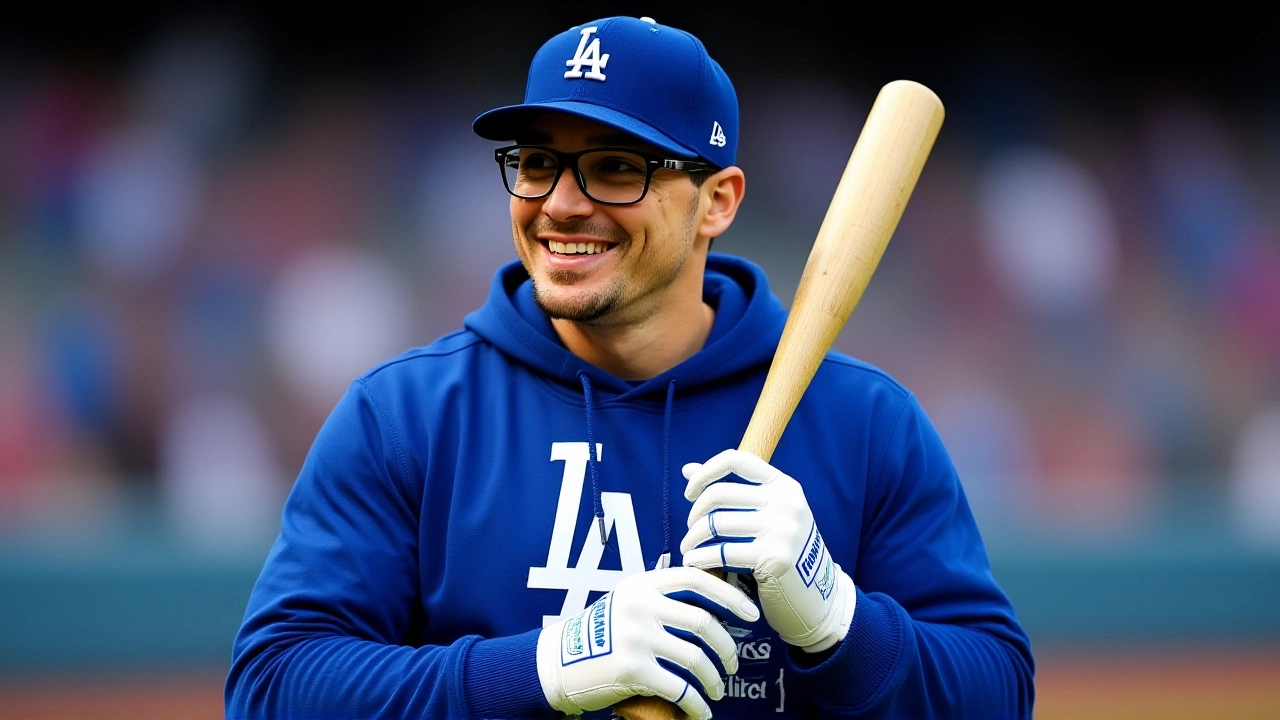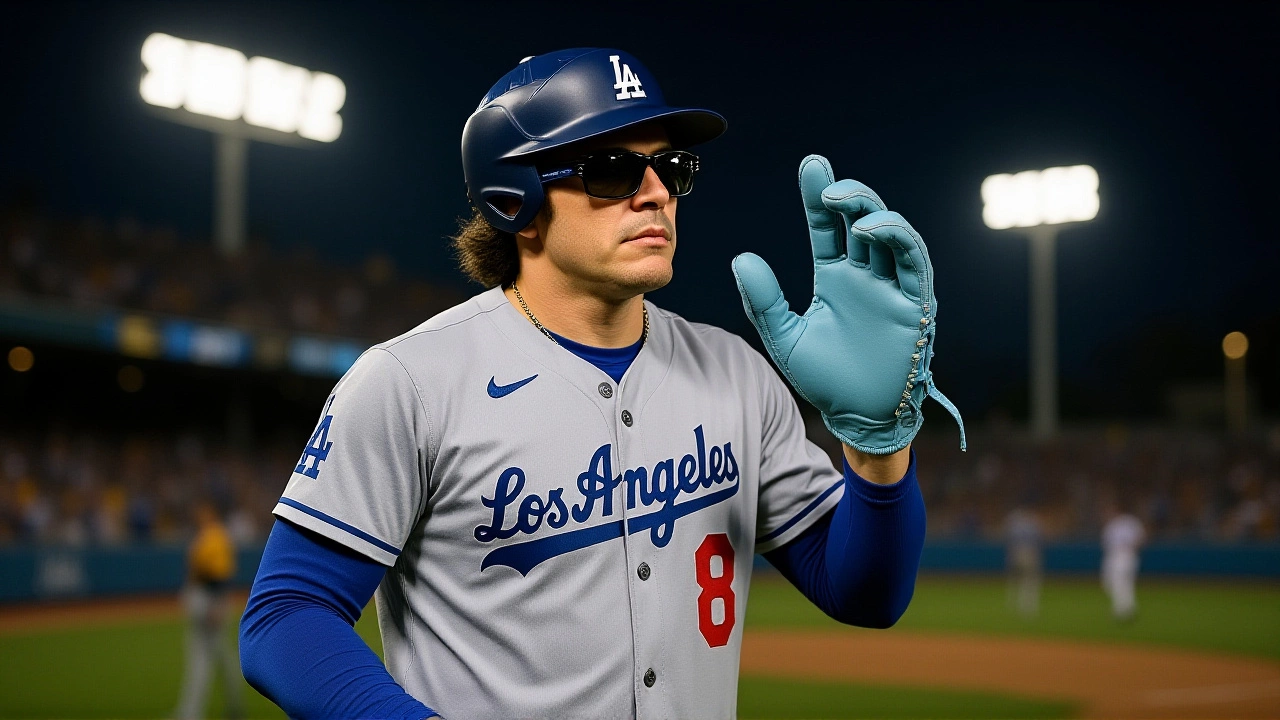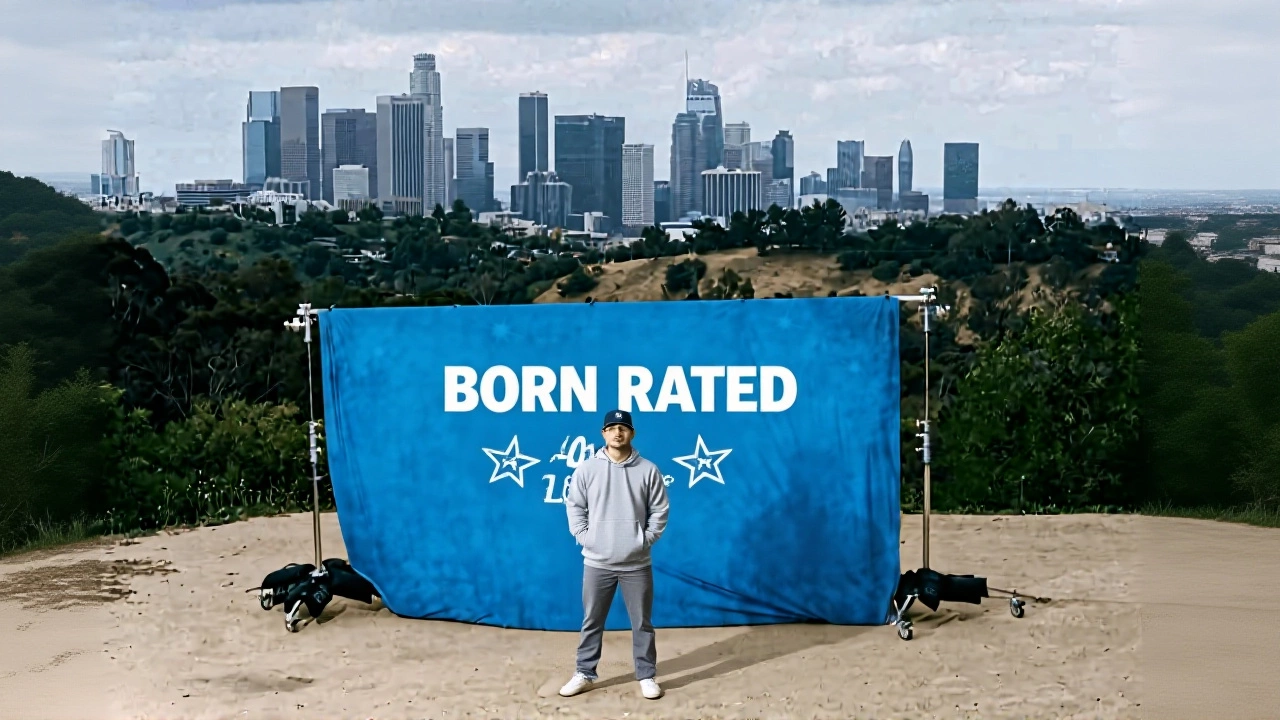When Kiké Hernández posted his raw, unfiltered Instagram statement on June 14, 2025, he didn’t just speak for himself—he shattered the deafening silence of one of America’s most iconic sports franchises. The Los Angeles Dodgers, a team that proudly markets itself as the heartbeat of a city where more than 40% of fans are Latino, had said nothing while federal immigration raids turned neighborhoods like Paramount into war zones. Hernández, a Puerto Rican native and two-time World Series champion, wrote: "I may not be Born & Raised, but this city adopted me as one of their own... I cannot stand to see our community being violated, profiled, abused and ripped apart." It was the first—and so far, only—public statement from any Dodger player since unrest erupted on June 7, 2025.
The Crackdown That Shook L.A.
The unrest began as peaceful demonstrations against U.S. Immigration and Customs Enforcement (ICE) operations targeting undocumented families in Los Angeles County. But by June 8, things spiraled. In Paramount, agitators set autonomous vehicles ablaze, sprayed "F--- ICE" across storefronts, and hurled rocks at police. Downtown stores were looted. The city, already raw from the recent passing of baseball legend Fernando Valenzuela in October 2024, felt like it was being torn in two. President Donald Trump responded by deploying the National Guard—a move Democrats condemned as militarization of civil dissent. By June 13, the streets were patrolled by soldiers in tactical gear, and Dodger players were quietly told to stick to routes between home and the stadium.
Manager Roberts’ Evasive Words
On June 13, Dave Roberts, the 52-year-old Dodgers manager since 2016, stood at the podium before a packed press room. "It’s unsettling," he said, his voice low. "When you’re having to bring people in and deport people... it’s certainly unsettling for everyone." Then came the quiet admission: "I haven’t done enough and can’t speak intelligently on it." The line hung in the air like smoke. Roberts, a longtime Southern California resident and the first Latino manager in franchise history, had spent years cultivating a reputation as a voice of calm. But in this moment, his silence spoke louder than his words.
A Team That Profits From Latino Culture—But Won’t Defend It
The Dodgers’ silence is especially jarring given their branding. They’ve worn Fernando Valenzuela patches all season, held Hispanic Heritage Night events, and plastered their website with Spanish-language promotions. Yet when the community needed them most—when mothers were being detained, when children were left behind, when streets burned—they didn’t issue a single tweet. Even when Nezza, the team’s anthem singer, performed "The Star-Spangled Banner" in Spanish on June 15, she later posted TikTok footage showing the organization had explicitly instructed her to sing in English. "They told me not to," she wrote. "I did it anyway—for my people."

George Lopez and the Boycott Movement
Actor and comedian George Lopez, a San Fernando Valley native whose family once lived in Chavez Ravine before the Dodgers built their stadium in 1962, didn’t hold back. After publicly criticizing the team’s silence, he says he was blocked from their social media accounts. "So they’ll take a stand on me," he wrote on Facebook, "but not on the treatment of the families who called Chavez Ravine home before they decided to build a baseball stadium where they lived." His post went viral. Community groups like Latino Voices for Justice and Barrio Unidos have since launched coordinated boycotts, urging fans to stop buying merchandise, skip games, and demand accountability.
Historical Irony: From Displacement to Silence
The irony isn’t lost on longtime Angelenos. The Dodgers’ move from Brooklyn in 1958 wasn’t just a relocation—it was an eviction. Thousands of Mexican American families were forced out of Chavez Ravine under the guise of "urban renewal," their homes bulldozed to make way for a stadium that would become a symbol of American baseball. Valenzuela, who arrived in 1980 and ignited "Fernandomania," was the first to truly bridge that divide. He didn’t just play for the Dodgers—he became the face of their Latino identity. Now, with his death less than eight months ago, the team’s refusal to speak out feels like a betrayal of his legacy.

What’s Next?
As of June 16, 2025, the National Guard remains in place, though the mayor has requested their withdrawal. ICE has paused new raids pending a federal review. But the real battle is unfolding in the stands. Ticket sales for upcoming weekend games are down 27% compared to last month, according to a source familiar with internal data. Merchandise returns are surging. And while Hernández’s statement was a spark, it’s not enough. Fans are demanding more: a public statement from owner Mark Walter, a donation to immigrant legal aid funds, and a meeting with community leaders. Until then, the Dodgers aren’t just silent—they’re complicit.
Frequently Asked Questions
Why is Kiké Hernández’s statement so significant?
Hernández is the first and only Dodger player to publicly condemn the ICE raids, breaking a team-wide silence that’s drawn criticism from fans and activists. As a two-time World Series champion and a beloved figure in L.A., his voice carries weight. His statement directly ties his personal identity as an immigrant to the city’s Latino community, making the Dodgers’ silence feel like a rejection of the very fans who support them.
How have the Dodgers responded to the backlash?
The Dodgers organization has issued no official statement as of June 16, 2025. While they’ve worn Fernando Valenzuela patches and hosted Hispanic events, they’ve refused to comment on the raids or the National Guard’s presence. Even when anthem singer Nezza performed in Spanish, the team allegedly instructed her to sing in English—revealing a disconnect between their marketing and their values.
What’s the connection between the Dodgers and Chavez Ravine’s displacement?
In the early 1960s, over 1,000 Mexican American families were forcibly removed from Chavez Ravine to make way for Dodger Stadium. The city used eminent domain under the pretext of public housing, but the land was ultimately given to the Dodgers. Many families never received fair compensation. George Lopez and others point to this history as proof that the team has long profited from the displacement of Latino communities—and now refuses to defend them.
Why is Fernando Valenzuela’s legacy relevant here?
Valenzuela didn’t just pitch—he united the Dodgers with the Latino community during a time of deep mistrust. His arrival in 1980 sparked a cultural renaissance in L.A. baseball. By honoring him with patches in 2025, the team is trying to claim his legacy. But without speaking out against current injustices, they risk turning his memory into a marketing tool rather than a moral compass.
Are fans really boycotting the Dodgers?
Yes. According to internal ticketing data, weekend game attendance has dropped 27% since mid-June, and online merchandise returns have increased by 41%. Community groups are organizing caravans to the stadium with signs reading "Where’s Your Voice?" and "Valenzuela Would Have Spoken." The boycott isn’t just symbolic—it’s hitting the team’s bottom line.
What could the Dodgers do to make amends?
They could issue a public apology, donate $2.3 million to immigrant legal aid organizations like RAICES and L.A. Justice Fund, and meet with community leaders to co-create a Latino Community Outreach Initiative. They could also publicly support legislation protecting undocumented families. Actions, not patches, are what’s needed now.
